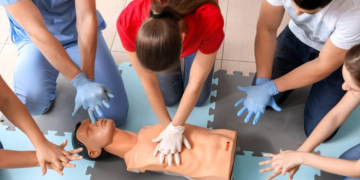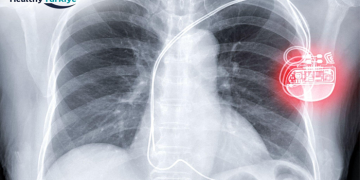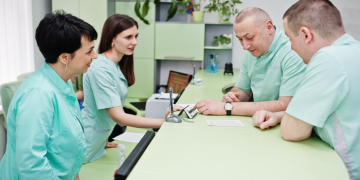Atrial fibrillation occurs when the heart’s upper chambers do not beat in coordination with the lower sections. Instead, the atria (upper chambers) beat in a fast and chaotic rhythm, impeding blood flow to the rest of your body. Most people with atrial fibrillation Frisco experience no symptoms, but atrial fibrillation may cause a pounding heartbeat, chest pain, dizziness, fatigue, and shortness of breath.
You may experience episodes of atrial fibrillation occasionally, or they may be persistent. Atrial fibrillation isn’t life-threatening, but it increases your risk of severe problems, including stroke and pulmonary embolism. The following article discusses the causes and potential complications of atrial fibrillation.
What causes atrial fibrillation?
To understand the causes of atrial fibrillation, you may need to understand the normal heart rhythm.
The heart has four chambers – two upper ones called the atria and two lower sections called the ventricles. The heart’s natural pacemaker within the right atrium is a group of cells called the sinus node. Usually, the upper atria contract first during each heartbeat, followed by the ventricles. The heart’s electrical system controls the timing of the heart’s contractions; when timed perfectly, these actions allow for an efficient pump.
In a regular heart rhythm, the sinus node releases electrical impulses through the atria (the two upper chambers), which pass through the atrioventricular node (the pathway between the upper and lower chambers). When the signals spread through the right and left atria, the sections constrict, forcing blood into the ventricles and the rest of your body.
For atrial fibrillation, many different impulses fire at once, causing a chaotic rhythm in the heart’s upper chambers (atria). Due to the fast and chaotic impulses, the upper chambers do not contract or squeeze blood effectively into the lower chambers (ventricles). Instead of the impulses traveling in an orderly manner, they all begin simultaneously, causing the AV node to bombard with signals. Although the AV controls or limits the number of impulses that get to the ventricles, many impulses still get through in a disorganized fashion.
As a result, the heart’s lower chambers (ventricles) contract irregularly, causing a rapid and irregular heartbeat. Atrial fibrillation often occurs due to problems with the heart’s structure. Examples of possible causes include:
- Heart attack
- Lung disease
- High blood pressure
- Sleep apnea
- Previous heart surgery
- Viral infections
- Coronary artery disease
- Physical stress due to pneumonia, stress, and other illnesses
- Congenital heart defect
- Heart valve problems
Possible complications of atrial fibrillation
Some people with atrial fibrillation live for years without problems, but it can cause blood clots. Since the upper chambers beat fast and irregularly, blood takes more time to flow through them, increasing the likelihood of clot formation. When the lump is pumped out of the heart, it can travel to the brain, causing a stroke or the lungs, resulting in pulmonary embolism. Blood clots can also travel to other body parts, including the kidneys and intestines. Over time, atrial fibrillation can significantly weaken the heart and lead to heart failure.
Consult your cardiologist at Prime Heart and Vascular to learn about the treatment for atrial fibrillation.














